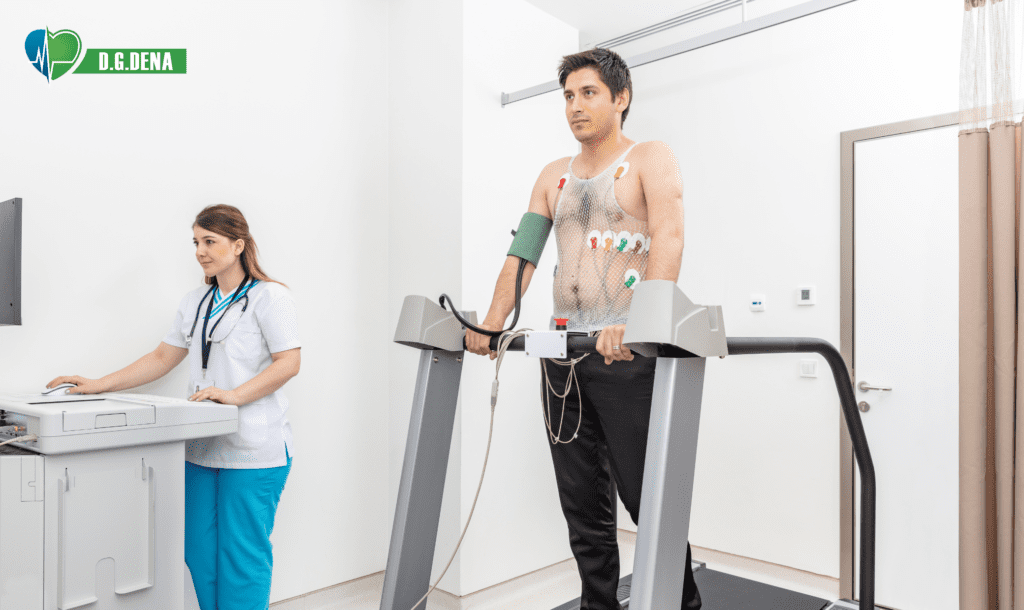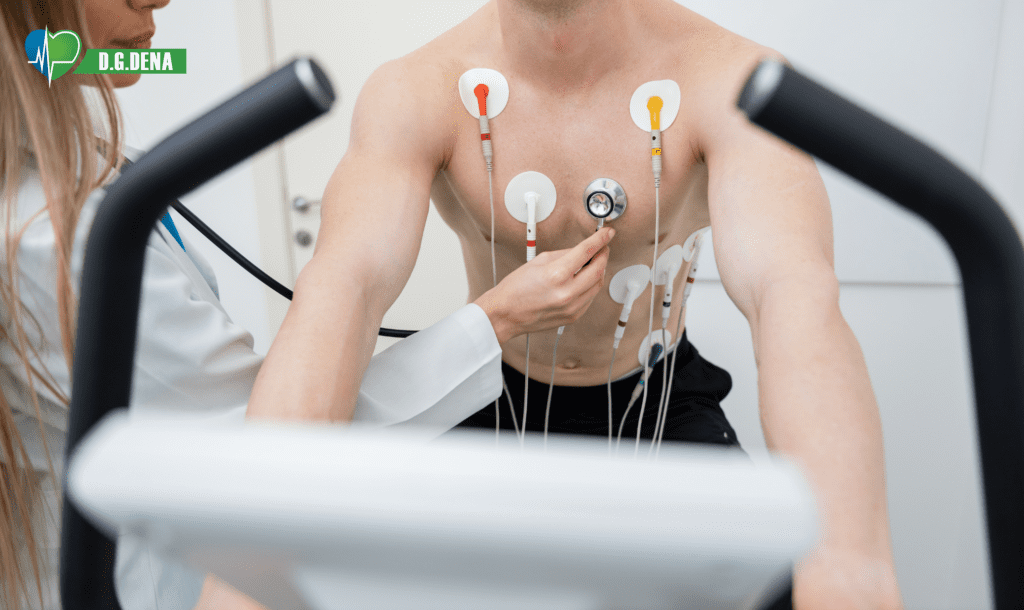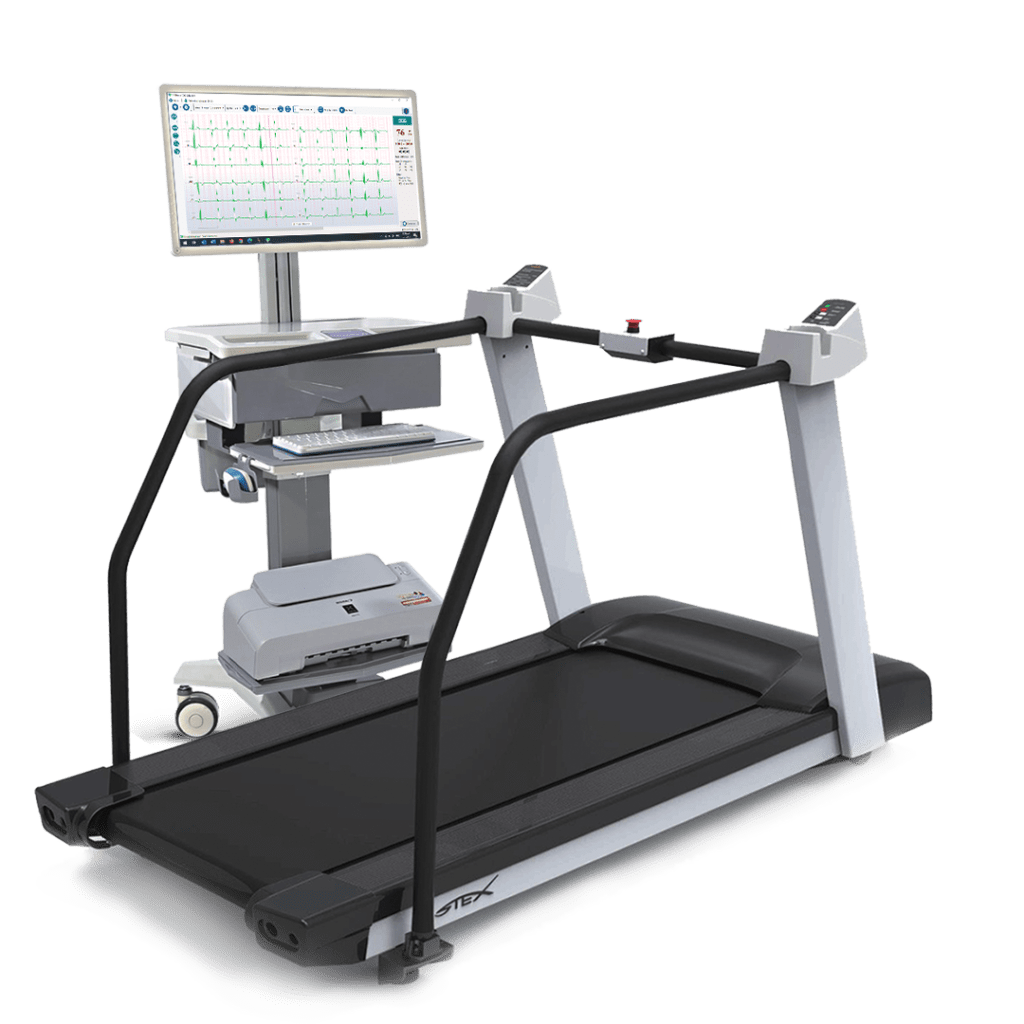A cardiac stress test (Treadmill test or Exercise test) examines your heart’s activity when it is experiencing increased functioning and workload. Most heart-related disorders tend to appear only when your heart is stressed and beating at a fast rate. The test monitors your heart rate and pumping efficiency while performing some physical exercise, usually operating on a medical treadmill, and generates a complete report for your doctor to assess. If you are not physically capable of taking the physical activity tests. In that case, the doctor may put you on medicines so that your heart becomes healthy enough so that, in the future, you can take physical tests.
Types of stress tests
- The blood flow to your heart
- Your blood pressure
- Heart rate check
- The electrical impulses that control your heartbeat
- Your heart imaging, which is at rest and also during physical activity, will allow your doctor to get a broader view of how healthy your heart is.
Cardiac Test Purpose
Stress tests are performed for the diagnosis of symptoms associated with heart disease. They are specifically used in diagnosing:
- Vascular diseases
- Heart arrhythmias
- Valve diseases
- Cardiomyopathy
- Angina
The Exercise test also helps to identify possible heart problems that can trigger heart attacks in the future and help determine preventive and treatment measures.
When to Get a Stress Test
Undergo a cardiac test if any of the following symptoms or conditions occur:
- Pain or discomfort in the chest
- Breath Shortness
- Fast or irregular heartbeat
- Dizziness or lightheadedness
Other reasons to have a stress test include:
- Progressive symptoms of heart disease
- Preoperative testing gauges the heart’s abilities and its health
- Ongoing treatment of heart disease
- High risk of heart disease
- Beginning an aggressive exercise program
How is stress testing done?
Although heart imaging may be performed in conjunction with a cardiac test, this is not done for all. The most common type of Exercise test involves exercising to observe how your heart works during physical activity. It also shows how well your heart works at rest. During the test, we will probably ask you to do the following:
– A blood pressure cuff is wrapped around the arm for monitoring the blood pressure at rest and exercise stages during the test.
– Electrocardiographs show the heart’s electrical activity through electrodes that are fixed to your body. Wires hook the electrodes to a machine for monitoring.

The molecule cardiac test
In cases of physical inability, the test can be performed using a medicine that is introduced through a vein. With this medicine that increases the heart rate for 10 to 15 minutes, you will be connected to an electrocardiogram machine that will record signals from your heart for this duration.
Unless you are given other instructions, if you can exercise, you will walk on a medical treadmill at an increasingly fast pace and on an increasing slope, or pedal a special bicycle to raise your heart rate while the ECG is monitoring your heartbeat.
The test usually lasts for 10 to 15 minutes. It is simply attempting to elevate your heart rate as per your fitness, age, and health status. The test can be terminated earlier than usual in the case of people experiencing chest pain, breathing problems, dizziness, or other monitoring.
You will be monitored once again for 10 to 15 minutes after the test.
Preparation for an Exercise test
- Wear appropriate, comfortable clothing and shoes.
- Do not eat, drink, or smoke for a few hours before the test.
- Do not consume caffeinated beverages like coffee, tea, and energy drinks.
- Discuss with your doctor about your medications. You may be advised to stop using certain medications for a few days before the test.
Stress Test Risks and Side-Effects
Stress testing is generally a safe procedure. A physician supervises the test. Should any complications arise during the test, it will be immediately stopped, and the appropriate medical treatment will be instituted. If medication is being administered through a vein in your arm rather than exercising, you may experience chest pain, nausea, or lightheadedness because the drugs are quickly raising your heart rate.
Stress Testing Interpretation Results
A normal Exercise test result has no problems indicating your blood pressure or heart condition. If there are abnormalities, seek clarification from the doctor and the direction forward regarding the treatment. Sometimes, you would be called for a re-test.
Dena Stress Test Device Model DG7000
The Dena cardiac stress test machine is the latest and most effective way to diagnose ECG, QT, and ST intervals seamlessly. The manufacturers made the software compatible for taking analysis with several commercial treadmills and ergometers. The module stores the data for the ECG’s and measures the heart rate variability.
To get more information about the Dena stress test, please click here.



